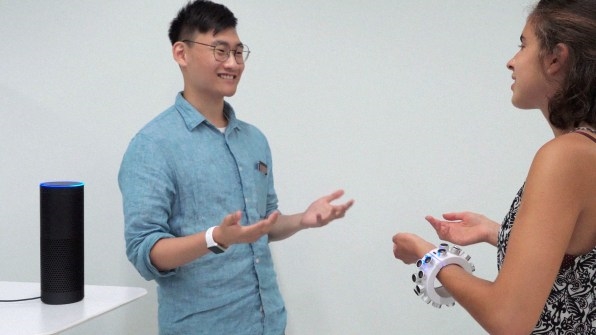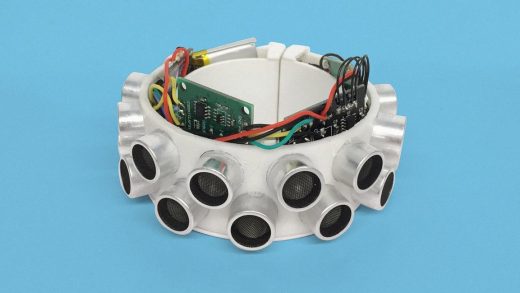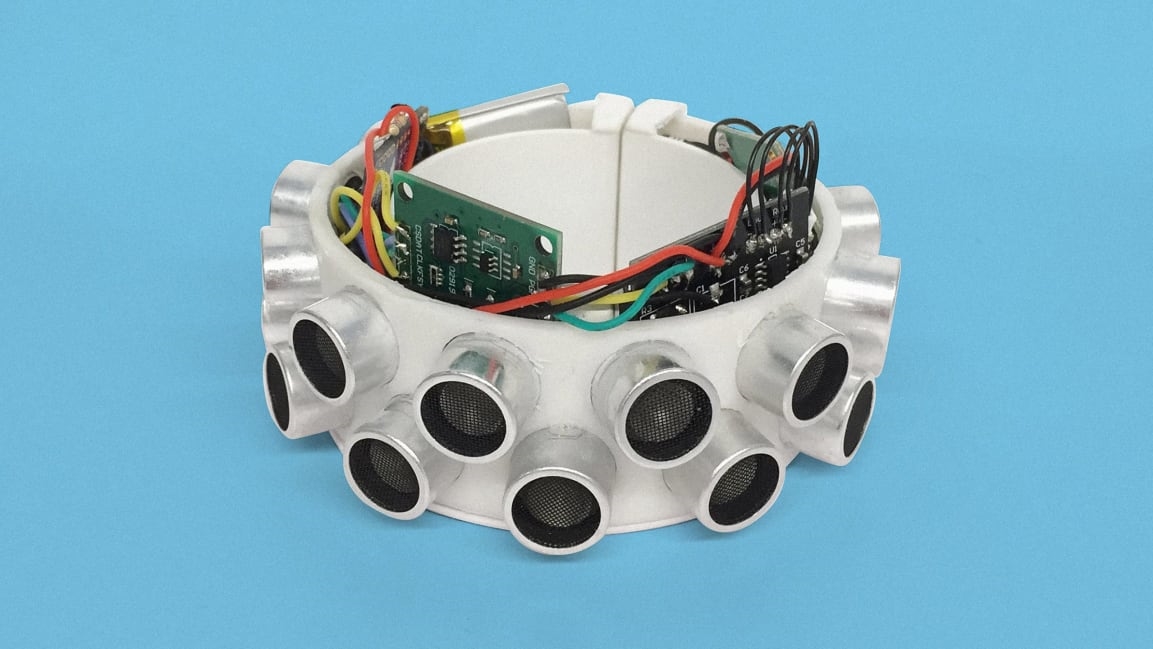Deafen Amazon and Google with this ingenious bracelet
Your laptop. Your watch. Your phone. Your TV. Your smart speaker. At any given moment, any of these items might be listening to you. That means, yes, an Amazon or a Google contractor might have transcribed part of a conversation you had in order to train a robot to understand your voice better. Or even creepier, audio matching technology from Shazam may have identified TV shows you watched by hearing them through an app on your iPhone.
It’s a disgusting practice, but without proper privacy regulation, it’s unavoidable. Even if you turn off your own devices, chances are that you will encounter someone else’s. Which is why researchers at the University of Chicago came up with an intriguing alternative to thwart eavesdropping devices. It’s a bracelet that goes on your arm and kind of resembles one of those goth spiked cuffs. But instead of sharp metal, it’s loaded with speakers. Hit a button, and they will flood your environment with very particular frequencies. You won’t hear the sounds, but they become white noise to microphones, which receive (and cannot block) the cacophony.
It’s an idea we’ve seen before. In 2019, a hack called Project Alias imagined a mute that you could put on top of the Amazon Echo speaker. It, too, flooded the Echo with white noise until you said the proper wake word, which would make the Echo work as normal. This bracelet builds upon the possibilities of Alias by imagining a completely wearable system, which doesn’t require you to install hardware in your environment. And the fact that it’s wearable is an advantage, because it means the bracelet’s speakers are in constant motion with your gestures, which helps the audio bounce around the room in less predictable patterns, naturally reducing potential blind spots.

I, for one, am sold! Where can I get it? As Heather Zeng, a professor of computer science and coauthor on the paper, explains, the invention is only a proof-of-concept device, and she doesn’t seem to have any motivation to take it to market. That said, the bracelet would be inexpensive to build—the speakers inside it cost only about $1 apiece, and you could even shrink the design. There’s no reason it has to be a bracelet: All sorts of accessories you wear could provide a similar function.
It’s easy to imagine such privacy accessories taking off, even if they don’t become fashion statements, even if only in corporate culture or other places where data privacy is of critical concern. But the bracelet is something more than the next potential fad: It’s a conscientious objection to the data grab of our daily lives. It’s a way to take back the intimacy of our lives that we have so quickly lost.
Fast Company , Read Full Story
(17)



